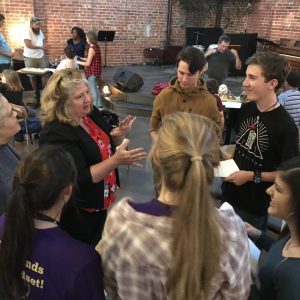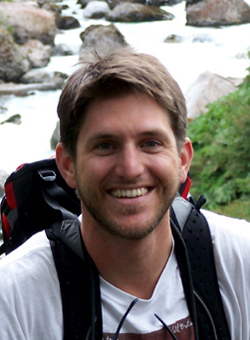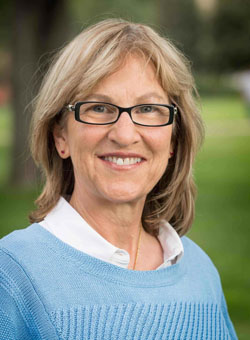Developing Relationships
The Department of Anthropology and Geography actively participates in community and school outreach and public events and forums to educate the public about the importance and contributions of our fields. Outreach programs also give our current students opportunities to participate in and lead educational experiences, and to develop relationships with our community at CSU, in Fort Collins, and throughout Colorado.
Educational Outreach
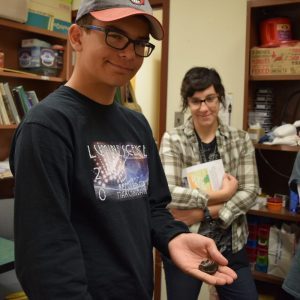
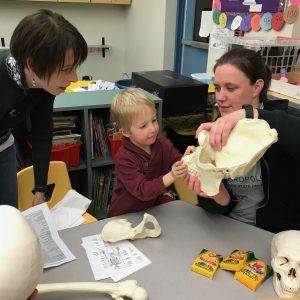
“Speaking Anthropology and Geography” Trunk Show
The department's Speaking Anthropology and Geography Trunk Show offers hands-on materials, artifacts, displays, and learning experiences to increase awareness and foster interest in anthropology and geography careers and concentrations.
Opportunities include school visits, campus field trips to the CSU Archaeological Repository and department labs, and other activities for high-school students, transfer students and new majors, and parents to demonstrate the valuable cultural perspectives and practical training that anthropology and geography offer toward a variety of careers.
Trunk Show activities can complement curriculum in many science and social-studies classes, including Forensic Science, Anatomy and Physiology, Zoology, AP Environmental Science, Geospace Science, AP Human Geography, World Geography and Culture, Anthropology, and other subjects. Our department also considers high-school student interns and "job shadowing" requests.
The Trunk Show also works with student volunteers and clubs to lead events at K-8 schools, science nights, family days, fairs, and other events in order to introduce young learners to anthropology, archaeology, paleontology and fossils, museum studies, and geography.
The Trunk Show has led activities with partners, schools, and students including:
-
- Poudre High School Anthropology, Fort Collins
- Gregory Allicar Museum of Art, Fort Collins
- Northridge High School Forensic Science Club, Greeley
- Fort Collins High School Forensic Science/ Biology, Fort Collins
- Fossil Ridge High School Rho Kappa (Social Studies National Honor Society)
- Compass Community Collaborative School, Fort Collins
- Rice Elementary, Wellington
- Dunn Elementary, Fort Collins
- Linton Elementary, Fort Collins
- James Madison STEAM Academy, Greeley
- Laurel Elementary, Fort Collins
- Polaris Expeditionary Learning School, Fort Collins
TRUNK SHOW BY THE NUMBERS
2023-24
Are you a teacher or student interested in setting up a school visit or field trip, or just want to know more?
Public Engagement
The motivation behind “engaged” or “public” scholarship in the US is as old as the founding of land grant universities themselves, established by the Morrill Act of 1862. But the ethic of strong connections between academic knowledge producers and the non-academic public found its modern voice and institutional urgency in Ernest Boyer’s seminal book Scholarship Reconsidered: Priorities of the Professoriate (1990). Boyer argued that “in no time in our history has the need been greater for connecting the work of the academy to the social and environmental challenges beyond the campus” (1990:xii). In a later publication, Boyer further stated that “the academy must become a more vigorous partner in the search for answers to our most pressing social, civic, economic and moral problems, and must reaffirm its historic commitment to what I call the scholarship of engagement” (1996:11).
Our Department of Anthropology and Geography is strongly committed to public scholarship. In each area of faculty expertise, we conduct research that contributes to building public awareness and knowledge.
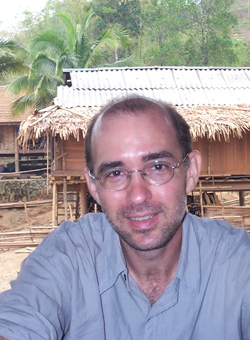
Stephen J. Leisz
- Professor
As part of his work in Vietnam and Laos, Geography Professor Leisz has engaged Province, District, and Commune level officials in discussing the drivers of local changes that are on-going. These efforts have included organizing participant discussions on new issues facing local communities and outreach efforts have led to insights regarding how land use and local livelihoods are changing. It is hoped that through co-research like this, local concerns will be able to be heard by higher-level policy makers.
